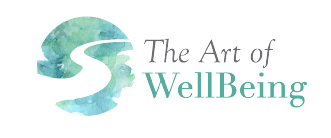Creating Communities of Lifelong Learners: A Strategy for WellBeing
Dr. Vivek Murthy, Surgeon General, writes about an important dimension of human connection (or lack thereof) which he calls collective loneliness: “the hunger for a network or community of people who share your sense of purpose and interests.” This is why, he explains, we may have a supportive marriage and strong friendships but still feel lonely. Certainly, the Church is called to be such a community. And as ministry leaders, we regularly facilitate relationships and supportive connections for those we serve. We know how to do this for others; yet where and how do we find this kind of community for ourselves?
The first step, for me, is to claim the role of being a lifelong learner. Think about the leaders you admire the most. Are they problem-solvers? Answer-givers? Purveyors of complete certainty? The leaders I’ve admired the most over the years were those who exuded an insatiable curiosity about the world, a confident humility, and a sense of wonder. Both of my parents were lifelong learners – always curious about people and places and ideas. My mother (who will be 90 later this year) is still engaged with world news, multi-generational relationships, Bridge and Scrabble with friends, and watching every kind of sport imaginable.
Eight years ago I was blessed to transition from full-time ministry in the local church after 30 years of service. Technically, I was retired. Yet I could not and cannot stop asking myself: How will I continue to learn, grow, and contribute in this new season? I’m inspired by the notion of vibrant longevity – a second half of life filled with life-giving practices such as contemplative prayer, walks in nature, preparing delicious food, investing in meaningful relationships, and – most of all – a sense of meaning and purpose. I want to learn and share learning with others as long as I live.
It’s important to note that a network of people with shared values and interests does not mean a group of people who all think, believe, and behave exactly alike. Sometimes the deepest learning comes from our experiences of being in genuine relationship and open conversation with those who think and believe differently than we do. Personally, I have learned that I need to be challenged. I need to be in conversation with others from diverse backgrounds and life experiences. I need to listen to others and be listened to in return. My friend and colleague, Brian Prior, likens these kinds of collaborative conversations to a Montessori Model. All are teachers and all are learners.
Like many of us, I long for a diverse and interactive community with others who share similar values and purpose – one where I can teach and give, but also learn and receive. In my 64th year, I believe that such a community of lifelong learning is an opportunity to stay mentally sharp, practice confident humility, be curious, cultivate life-giving relationships, and trust that I still have something to contribute to the world for the sake of others. Let’s create such communities of practice together – one conversation at a time.
